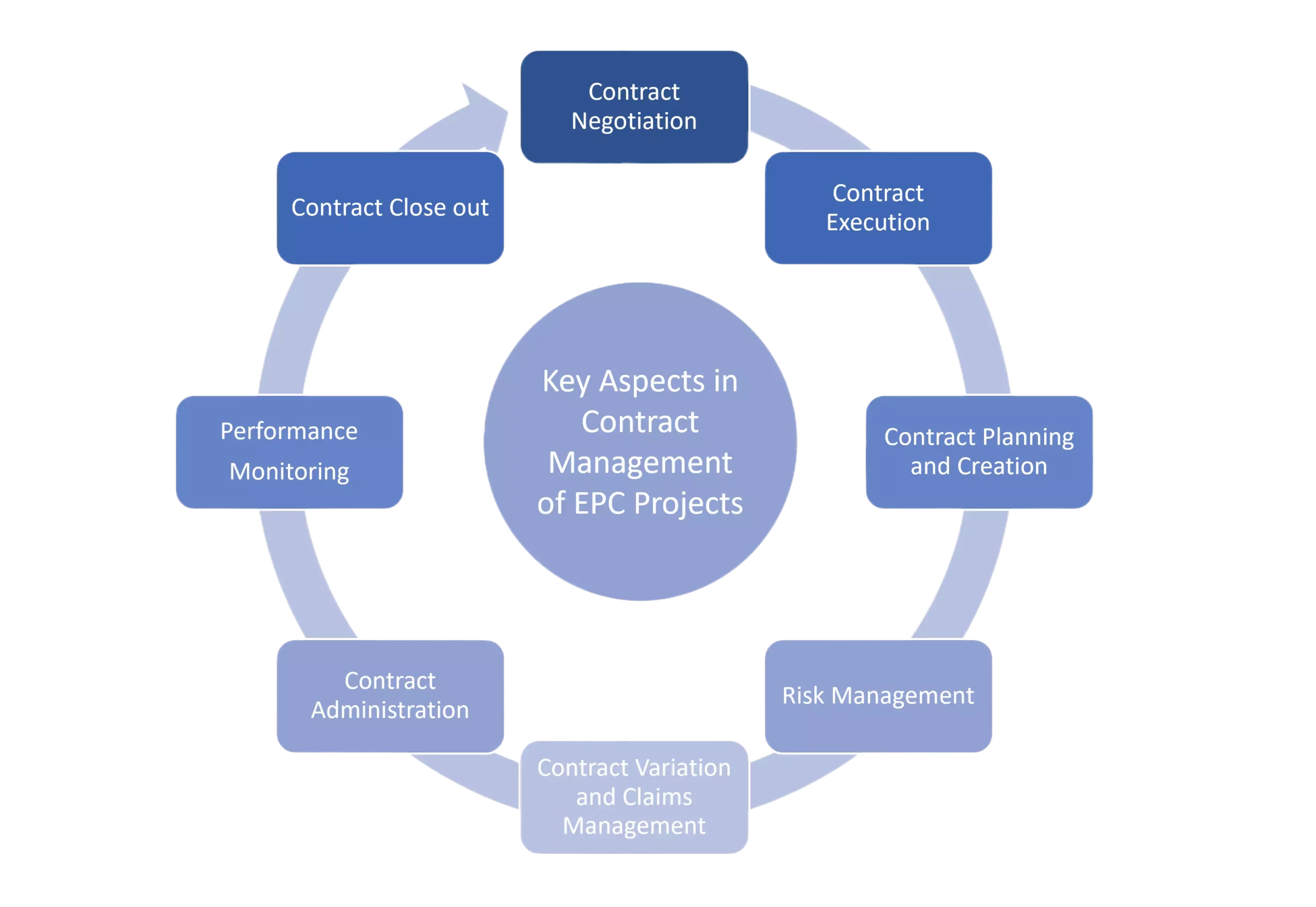Services | Project Controls | Contract Management
Contract Management
Contract management is a critical aspect of project management, involving the entire process of creating, negotiating, executing, monitoring, and closing contracts between parties. The primary goal of contract management is to ensure that all parties involved in a contract fulfill their obligations while minimizing risks and optimizing value. Effective contract management encompasses several key components.
Contract management plays a crucial role in the success of EPC projects, as it helps ensure that all parties involved in the project fulfill their obligations, control risks, and deliver the project on time and within budget.
Here are the key aspects of contract management in EPC projects
Contract planning and creation: In EPC projects, contracts typically have a complex scope and involve multiple parties, such as owners, contractors, subcontractors, and suppliers. Developing a well-defined contract that outlines the scope of work, performance metrics, payment terms, and responsibilities of each party is essential to minimize potential disputes and ensure the project’s success.
Contract negotiation: Negotiating EPC contracts requires a thorough understanding of the project’s technical requirements, risks, and commercial aspects. Successful negotiation involves balancing the interests of all parties and developing a fair and mutually beneficial agreement that sets the foundation for a strong working relationship.
Contract execution: Once the contract is finalized and signed, the EPC contractor is responsible for delivering the project according to the contract’s terms and conditions. This includes mobilizing resources, initiating the engineering and design process, procuring materials and equipment, and managing the construction phase.
Contract administration: Managing EPC contracts involves overseeing the contractual relationship, ensuring that all parties comply with their obligations, and addressing any changes or issues that may arise during the project. This includes managing change orders, tracking project progress, processing payments, and maintaining contract documentation.
Performance monitoring: Regularly monitoring the performance of the EPC contractor and other involved parties is critical to ensuring that the project stays on track and meets the required quality standards. Performance metrics such as schedule adherence, cost control, and quality indicators should be used to evaluate progress and identify potential issues or delays.
Risk management: EPC projects often involve significant risks related to technical complexity, cost overruns, schedule delays, regulatory compliance, and safety. Effective risk management includes identifying, assessing, and addressing these risks through risk mitigation strategies, contingency planning, and regular risk reviews.
Contract variations and claims management: During an EPC project, changes in scope, design, or other factors may require contract variations or result in claims. Managing these changes and claims effectively is essential to maintaining control over the project’s timeline and budget and minimizing potential disputes.
Contract closeout: Once the project is completed and all contractual obligations are fulfilled, the contract must be formally closed. This involves conducting a final performance evaluation, resolving any outstanding issues or disputes, and completing financial reconciliations.

Effective contract management in EPC projects is critical to ensuring that projects are delivered on time, within budget, and to the required quality standards. By proactively managing contracts and addressing potential issues, owners and EPC contractors can work together to achieve successful project outcomes.
Let’s get in touch
